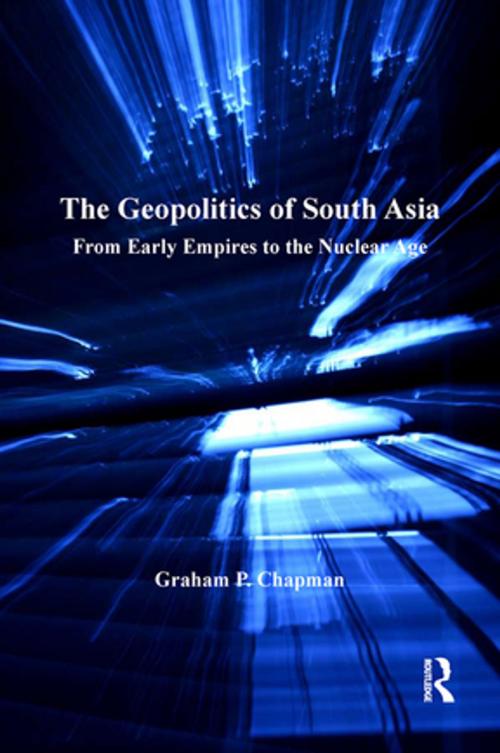The Geopolitics of South Asia
From Early Empires to the Nuclear Age
Nonfiction, Science & Nature, Science, Earth Sciences, Geography| Author: | Graham P. Chapman | ISBN: | 9781317030423 |
| Publisher: | Taylor and Francis | Publication: | March 9, 2016 |
| Imprint: | Routledge | Language: | English |
| Author: | Graham P. Chapman |
| ISBN: | 9781317030423 |
| Publisher: | Taylor and Francis |
| Publication: | March 9, 2016 |
| Imprint: | Routledge |
| Language: | English |
Anyone who is planning on carrying out research in South Asia or indeed anyone who simply wishes to understand more about this cultural heartland should read this book. It shows how geological movements moulded the land of this unique cradle and how they still impact on it. Discussions are woven around the three major forces of integration. These are 'identitive' forces - bonds of language, ethnicity, religion or ideology; 'utilitarian' forces - bonds of common material interest, and 'coercion' - the institutional use or threat of physical violence. By studying these forces, Professor Chapman shows how the organization of territory has been central to the region's historic, cultural, linguistic and economic development. In addition to the material on the Northwest frontier, Afghanistan and Kashmir which was added for the second edition, the Northeastern borderlands are also now examined in this fully revised third edition. The current geopolitical state of the region is completely updated and greatly enhanced.
Anyone who is planning on carrying out research in South Asia or indeed anyone who simply wishes to understand more about this cultural heartland should read this book. It shows how geological movements moulded the land of this unique cradle and how they still impact on it. Discussions are woven around the three major forces of integration. These are 'identitive' forces - bonds of language, ethnicity, religion or ideology; 'utilitarian' forces - bonds of common material interest, and 'coercion' - the institutional use or threat of physical violence. By studying these forces, Professor Chapman shows how the organization of territory has been central to the region's historic, cultural, linguistic and economic development. In addition to the material on the Northwest frontier, Afghanistan and Kashmir which was added for the second edition, the Northeastern borderlands are also now examined in this fully revised third edition. The current geopolitical state of the region is completely updated and greatly enhanced.















